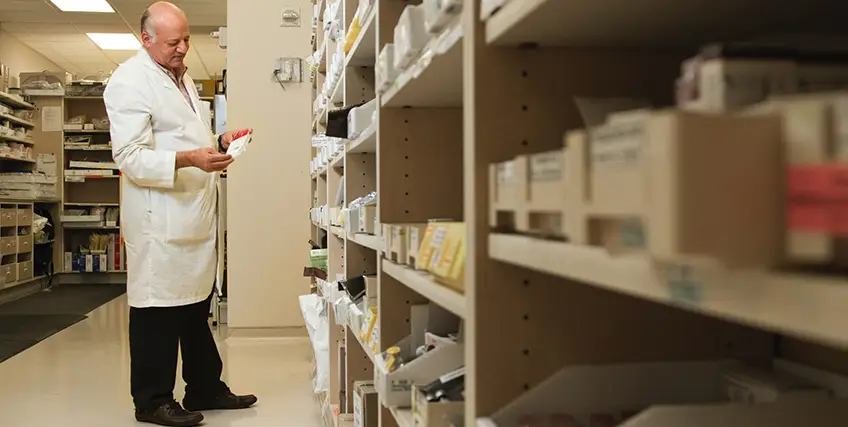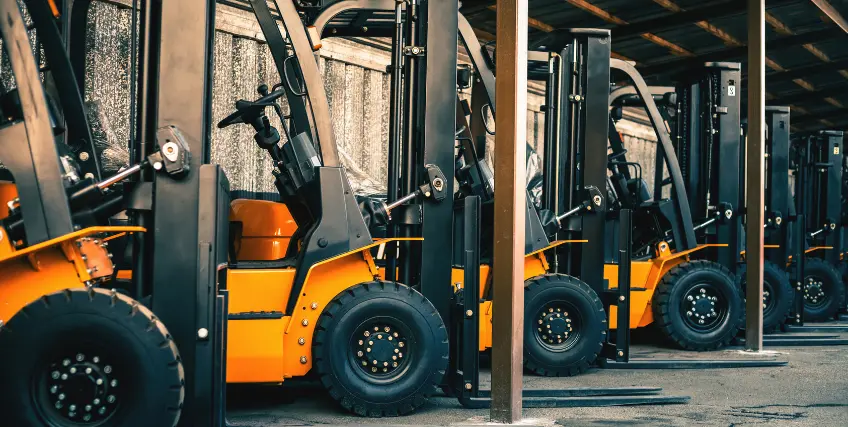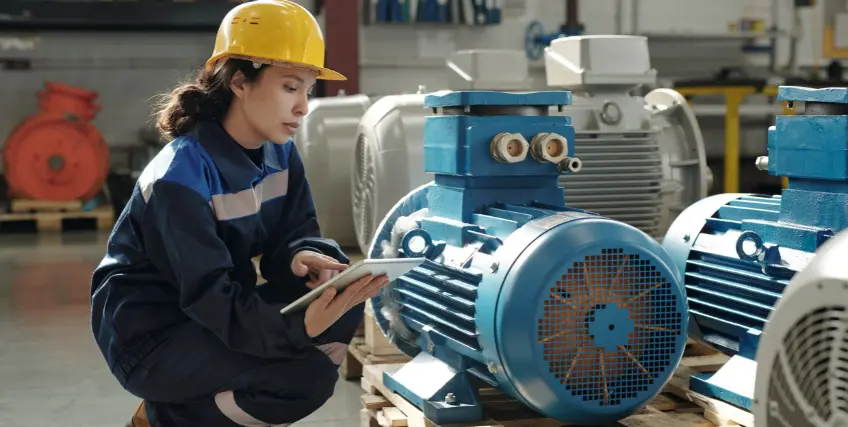The Role of Equipment Lease Financing in Small Business Growth
January 23, 2025 | Last Updated on: January 23, 2025

Investing in your small business is often a requirement for its growth. However, it’s not uncommon to see a difference between what you need to buy for your company and what your company’s cash flow will allow you to buy at any given time.
Business equipment can help you expand your company, whether you’re trying to buy vehicles, heavy machinery, manufacturing equipment, office furniture and equipment, or more. If your business can’t afford those purchases outright, lease financing will give you access to necessary equipment without forcing you to buy those items upfront.
Here’s a look at what equipment lease financing is, what types of equipment you can get, and how business owners can best leverage this financing option to support and grow their company.
What is Equipment Lease Financing?
Equipment lease financing is a form of borrowing between small business owners (lessees) and lenders (lessors). This agreement provides lessees with access to used or new equipment in exchange for an agreed monthly payment over a specified period of time.
Unlike outright purchasing a piece of equipment , equipment lease financing is more like renting. The lessor or equipment owner maintains ownership of the machine throughout the lease agreement, while the lessee essentially pays for the privilege of using that machinery.
However, it differs from renting in that these agreements often allow borrowers to buy out the lease. This involves paying a residual amount at the end of the lease in exchange for keeping the equipment. The exact cost of that buyout depends on factors like the original lease agreement terms and the current fair market value of the equipment.
Benefits of Equipment Leasing for Small Businesses
Equipment leases can be a great financing solution for businesses that need access to equipment but can’t get credit approval for a business loan, don’t have the working capital available for a down payment, or aren’t sure whether they want to own that pricey equipment just yet.
Some benefits to equipment lease financing include:
- Better cash flow — Rather than tying up your business capital with equipment purchases, an equipment lease has lower upfront costs and only requires set monthly payments over the lease term.
- Access to better equipment — A lease may allow you to get newer, higher quality, more efficient, and more expensive gear than you could if you paid upfront.
- Tax benefits — In many cases, you can still take advantage of benefits like Section 179, which offers tax deductions on your lease payments and interest.
- Flexibility — By leasing (rather than buying), you can easily upgrade, downgrade, or even surrender equipment as your financial and business needs change.
- Predictability — Equipment financing solutions offer predetermined and sometimes lower monthly payments, so that businesses can plan their long- and short-term finances around that repayment.
- Risk reduction — An operating lease lets you avoid certain financial risks, like owning outdated or unnecessary equipment or dealing with it’s obsolescence and depreciation over time.
- Flexibility — Business owners will often be given a purchase option at the end of the lease term, allowing you to buy that equipment if you decide it’s what your business needs.
- Ownership benefits — Some equipment lease financing options, like capital lease agreements, give business owners most of the benefits and risks as traditional ownership even if they don’t fully own the equipment.
Drawbacks of Equipment Leasing
Of course, equipment lease financing isn’t for everyone and, in some cases, buying equipment outright may be the better option. Some downsides to equipment leasing include:
- Long-term costs — Between fees and interest rates, business financing will cost more than purchasing the equipment upfront and outright.
- Commitment — If you decide that your business needs have changed or your company can no longer afford your equipment lease, it might be difficult to change your lease terms or exit the agreement ahead of schedule.
- Lack of ownership — While some leasing agreements offer many ownership benefits to small businesses, you still won’t build equity in any leased equipment (unless it’s purchased from the leasing company at the end of your term).
Best Practices for Leasing Equipment
If you decide that equipment lease financing is the right call for your company, whether you’re a startup or an established small business, there are a few key things to keep in mind.
The first is that leasing isn’t for everyone, and, in some cases, a business loan or line of credit might be worth considering instead. That way, you will own the equipment but still have the option of paying overtime.
Many equipment leases are easier to qualify for than business loans, but you will still want to research what the lender needs from you to get started, if anything (such as bank statements, tax returns, etc.). SBA loans have a lengthy approval process that often requires a business plan and other financials, while low doc equipment finance agreements require little financial documentation.
Before taking out an equipment lease, be sure to read all of the disclosures to understand your conditions before committing. This will tell you how much you’re paying monthly and throughout the agreement, as well as how the equipment will be handled at the end of the lease term. For example, a TRAC lease will include an agreed-upon estimated residual equipment value from day one, while other leases allow you to buy out the equipment at then-market values.
Final Thoughts
Equipment lease financing can be a great way to connect small businesses with the equipment they need to start up, expand, or even acquire another company. For example, a restaurant equipment lease can help you acquire a commercial kitchen and get your restaurant up and running, while used equipment loans and machinery loans can get you the heavy equipment necessary to grow your construction business or farm.
These agreements differ from other forms of business financing, like SBA loans or small business lines of credit, in that you are essentially renting equipment versus buying it outright. You often have the option to buy this equipment at the end of your lease agreement, though, so it may be the best of both worlds when used correctly. Whether equipment leases are right for you depends on your specific business and financing needs, as well as what you can afford.
FAQs about Equipment Lease Financing
What is equipment lease financing?
Equipment lease financing is an agreement to rent heavy equipment, machinery, office furniture, and more from a lessor or lender who owns the items. You’ll make monthly payments throughout the lease, and at the end of the agreement term, you may have the option to purchase the equipment at a predetermined or current market value.
What are typical terms for equipment financing?
An equipment lease financing agreement may have short repayment terms, lasting just a few months, or could extend longer terms, such as three to 10 years in length. Your terms will also include your interest rate and any fees, along with if (and how) you can purchase the equipment at the end of the lease agreement.
What credit score is needed for an equipment loan?
Since equipment loans are secured by the machinery as a collateral asset, even businesses with limited or poor credit may be able to qualify. That said, the better your credit score, the more likely you are to qualify for your loan or lease, the lower the interest rates you’ll be offered, and the better your possible loan or lease terms.
Does leasing equipment affect your credit?
Equipment leases are not usually reported to the business credit bureaus, so they won’t typically affect your credit. This can make leasing a better option for low or no-credit businesses or those wanting to maintain a healthy debt-to-income ratio, compared to taking out a business loan or line of credit.
Can you pay off an equipment lease early?
Some equipment leases allow you to pay off the agreement ahead of schedule. However, you may still be required to pay any agreed financing costs, and there might be additional penalties or fees involved.




